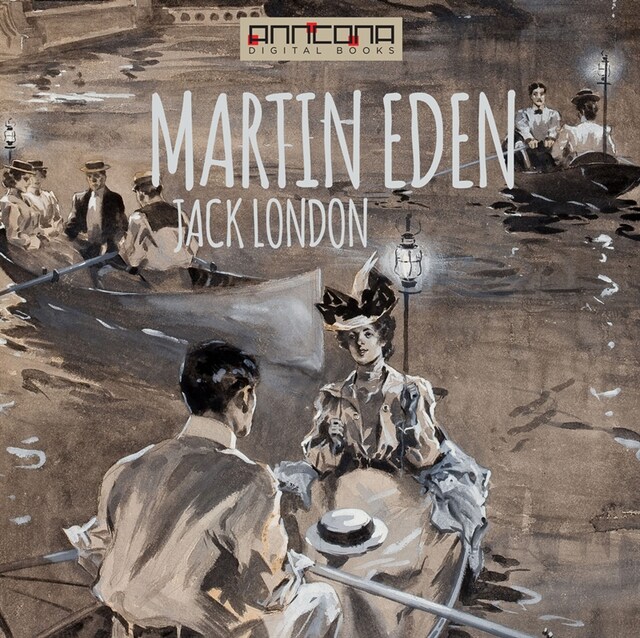
Martin Eden
Beskrivelse av boken
Martin Eden is a 1909 novel by American author Jack London about a young proletarian autodidact struggling to become a writer.
Living in Oakland at the beginning of the 20th century, Martin Eden struggles to rise above his destitute, proletarian circumstances through an intense and passionate pursuit of self-education, hoping to achieve a place among the literary elite. His principal motivation is his love for Ruth Morse. Because Eden is a rough, uneducated sailor from a working-class background and the Morses are a bourgeois family, a union between them would be impossible unless and until he reached their level of wealth and refinement.
Eden represents writers' frustration with publishers by speculating that when he mails off a manuscript, a "cunning arrangement of cogs" immediately puts it in a new envelope and returns it automatically with a rejection slip. The central theme of Eden's developing artistic sensibilities places the novel in the tradition of the Künstlerroman, in which is narrated the formation and development of an artist.
Eden differs from London in that Eden rejects socialism, attacking it as "slave morality", and relies on a Nietzschean individualism. In a note to Upton Sinclair, London wrote, "One of my motifs, in this book, was an attack on individualism (in the person of the hero). I must have bungled, for not a single reviewer has discovered it."
Jack London (1876-1916) was an American author, journalist, and social activist. He was a pioneer in the then-burgeoning world of commercial magazine fiction and was one of the first fiction writers to obtain worldwide celebrity and a large fortune from his fiction alone.
London's most famous novels are The Call of the Wild, White Fang, The Sea-Wolf, The Iron Heel, and Martin Eden.



